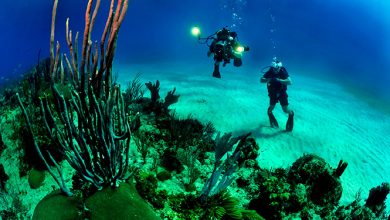Brainwave Optimization Available in Playa del Carmen
This alternative therapy is reported to improve your brain function and overall wellness - and it involves listening to your own brain’s activity. Curious? Read on.

 Have you ever wished your brain would function slightly more efficiently? Haven’t we all! Have you wished that you could release thoughts and worries and achieve deeper mediation? Perhaps daily!
Have you ever wished your brain would function slightly more efficiently? Haven’t we all! Have you wished that you could release thoughts and worries and achieve deeper mediation? Perhaps daily!
I was recently invited to try Brainwave Optimization at Limitless You Brain Spa. It may sound somewhat strange and the experience is certainly unusual, however you could achieve a sense of peace, focus and improved overall well-being by trying this.
The process involves a consultation with someone trained to perform the treatment. You will be asked about lifestyle, possible trauma or struggles and goals for the treatment. You then relax in a comfortable reclining chair while sensors are placed around the head – this is completely painless. These sensors detect brainwaves, which are then recorded on the nearby computer before being turned into musical tones and played to you through earphones.
These musical notes that you hear are directly created by your brainwaves allowing your brain to effectively listen to itself. Yes, that part takes a little effort to wrap your head around!
The brain is an amazing organ and it can use this process for awareness and self-regulation. Just by allowing the brain to hear this feedback, it has the capacity to adjust and heal.
According to www.limitlessyouplaya.com “Traumas – both physical and emotional – can knock brain functions out of balance. Imbalanced brain function has been associated with a variety of ailments and disorders. When the brain returns to a state of balance and harmony, the effects of the initial trauma are eased.”
Reported benefits include deeper sleep, reduced stress, improved focus and memory, better decision-making, confidence and performance and overall well being.
Sara Jones
Spa, Wellness & Lifestyle Expert, Spa Consultant and Founder of Spa & Wellness MexiCaribe magazine







